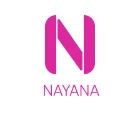In the ever-evolving digital landscape, businesses are increasingly relying on mobile applications to enhance their online presence. As a leading provider of freelance website design, IT solutions, and eCommerce website development, Creative Gradientz understands the importance of choosing the right app development approach. One popular option gaining traction is hybrid app development.
But is it the right choice for your business in 2025? Let’s explore the pros and cons of hybrid app development to help you make an informed decision.
What is Hybrid App Development?
Hybrid apps are a blend of native and web applications. They are built using technologies like HTML, CSS, and JavaScript and then wrapped in a native container using frameworks such as Flutter, React Native, or Ionic. This allows them to run on multiple platforms using a single codebase.
Pros of Hybrid App Development
1. Cost-Effective Solution
Hybrid app development significantly reduces costs as developers only need to write and maintain one codebase for both iOS and Android. This is particularly beneficial for startups and small businesses.
2. Faster Time-to-Market
With a single codebase, development time is drastically reduced. Businesses can launch their apps faster, gaining a competitive edge in the Dubai market.
3. Easy Maintenance and Updates
Updating a hybrid app is simpler since changes can be implemented across all platforms simultaneously, without requiring multiple updates.
4. Wider Reach
By targeting both Android and iOS users with one app, businesses can maximize their reach and expand their customer base.
5. Offline Capabilities
Many hybrid apps offer offline functionality, which is essential for businesses offering services like eCommerce or IT solutions.
Cons of Hybrid App Development
1. Performance Limitations
Hybrid apps may not match the performance of native apps, particularly for resource-intensive applications like gaming or augmented reality.
2. Limited Native Features
Accessing device-specific features can be challenging in hybrid apps, leading to limited functionality compared to native apps.
3. User Experience Challenges
While hybrid frameworks have improved, they may still struggle to deliver the same seamless experience as native apps.
4. Dependency on Third-Party Tools
Hybrid development relies heavily on third-party frameworks and plugins, which may introduce compatibility issues.
5. Potential Security Concerns
Due to their reliance on web technologies, hybrid apps may be more susceptible to cyberattacks compared to their native counterparts.
Is Hybrid App Development Right for You?
Choosing between hybrid and native app development depends on your business goals, budget, and the type of app you envision. If you’re a small business owner in Dubai looking for a cost-effective, cross-platform solution, hybrid apps can be an excellent choice.
At Creative Gradientz, we specialize in providing expert guidance for businesses seeking mobile app development solutions. Whether you're a startup looking to launch a new app or an established enterprise aiming to optimize your digital presence, our team of freelancers is here to help.
Contact Us Today!
Ready to transform your app idea into reality? Get in touch with Creative Gradientz to explore the best development approach for your business in 2025.


